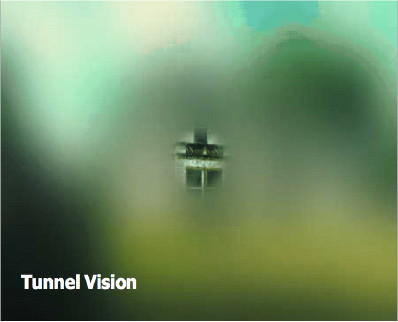Whatever we do, we do for a reason. Since we’re not crazy, there is always a reason behind our actions.
Every action.
When our behaviors are perplexing, it’s almost always because we’re unaware of our true motivations in the moment.
One of the most pernicious motivators is being right.
 If you’ve ever sat with a couple heading for divorce, you’ve seen this. Each spouse has reached conclusions about their mate’s limitations, motivations, character defects, and willingness to change. Over time, they’ve found ample evidence to support these judgments — solidifying their commitment to what they’ve decided is true.
If you’ve ever sat with a couple heading for divorce, you’ve seen this. Each spouse has reached conclusions about their mate’s limitations, motivations, character defects, and willingness to change. Over time, they’ve found ample evidence to support these judgments — solidifying their commitment to what they’ve decided is true.
And, they’ve ignored many dozens of data points that disagree with this thesis.
As you labor to referee reconciliation you quickly discover they’re not having one conversation but two. Each lobbing evidence to support how right they are about how wrong their spouse is. The energy that each spouse invests to defend the “rightness” of their position is only overshadowed by the devastation that’s wrought on their relationship.
To be proven right is the “booby prize” in any conflict.
The desire to be right is a powerful motivator all across life. A pastor had developed the practice of predicting who was about to leave his church, trouble that would be erupting on his staff, and problems his ministry would soon be encountering. His track record was excellent: just about every departure, difficulty, and hardship he predicted did happened. Despite the devastation these events brought, he took solace in the clarity with which he’d anticipated them.
Crazy, I thought.
Why not labor to prevent these things from occurring? As we worked together, he developed strategies to undermine the problematic scenarios before they happened. And yet, before he gave himself to thwart these troubles he first gave up being right about their inevitability… and his ability to predict the future.
When being right will not serve you or them, my invitation is to give up being right about it.
 The drive to be right is a lot like living with tunnel vision: you’re predisposed to notice what confirms your assumptions, and you’ll likely miss most everything that contradicts them. This undermines creativity, closes down opportunities, and locks you into outcomes that you may really not want.
The drive to be right is a lot like living with tunnel vision: you’re predisposed to notice what confirms your assumptions, and you’ll likely miss most everything that contradicts them. This undermines creativity, closes down opportunities, and locks you into outcomes that you may really not want.
I listen to political talk radio. There are several radio personalities that I like. They say what I think, promote what I believe is best for the country, and oppose practices I think are weakening us as a society. It’s easy to listen to them.
Also, as a discipline, I listen to the radio station on the other side of the political spectrum. I listen for what I can agree with and what I can consider that’s new to me. It is rigorous to listen not to be proven right, but to discover what I don’t know.
So, where in your life are you locked into being “right” about someone or something?
What if you gave up the preference to be right, and trusted God to surprise you with something new?
Coaching Distinctions # 8